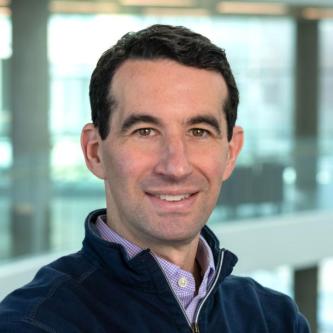Dr. Jay D. Aronson ~ Founder and Director of the Center for Human Rights Science at Carnegie Mellon University & Professor for Science, Technology, and Society in the History Department.
FREE BOOK COPY to the first 5 graduate students that RSVP.
Topic:
Deaths resulting from interactions with the US criminal legal system are a public health emergency, but the scope of this issue is intentionally ignored by the very systems that are supposed to be tracking these fatalities. We don't know how many people die in custody each year, whether in an encounter with police on the street, during transport, or while in jails, prisons, or detention centers. In order to make a real difference and address this human rights problem, researchers and policy makers need reliable data.
In Death in Custody, Roger A. Mitchell Jr., MD, and Jay D. Aronson, PhD, share the stories of individuals who died in custody and chronicle the efforts of activists and journalists to uncover the true scope of deaths in custody. From Ida B. Wells's enumeration of extrajudicial lynchings more than a century ago to the Washington Post's current effort to count police shootings, the work of journalists and independent groups has always been more reliable than the state's official reports. Through historical analysis, Mitchell and Aronson demonstrate how government at all levels has intentionally avoided reporting death in custody data.
Mitchell and Aronson outline a practical, achievable system for accurately recording and investigating these deaths. They argue for a straightforward public health solution: adding a simple checkbox to the US Standard Death Certificate that would create an objective way of recording whether a death occurred in custody. They also propose the development of national standards for investigating deaths in custody and the creation of independent regional and federal custodial death review panels. These tangible solutions would allow us to see the full scope of the problem and give us the chance to truly address it.
Bio:
Jay D. Aronson is the founder and director of the Center for Human Rights Science at Carnegie Mellon University, where he is also Professor of Science, Technology, and Society in the History Department. Prof. Aronson’s research and teaching examine the interactions of science, technology, law, media, and human rights in a variety of contexts. For the past several years, he has been focusing on deaths in law enforcement custody in the United States. His recent book Death in Custody: How America Ignores the Truth and What We Can Do about It (Johns Hopkins University Press, 2023), co-authored with Dr. Roger A. Mitchell, examines the history of efforts to counteract official government ignorance on this issue and proposes a variety of practical solutions to the lack of data about how many people die in custody each year. In addition, Prof. Aronson maintains an active interest in the use of digital evidence (especially video) in human rights investigations. In this context, he primarily facilitates partnerships between computer scientists and human rights practitioners to develop better tools and methods for acquiring, authenticating, analyzing, and archiving human rights media. Previously, Prof. Aronson spent nearly a decade examining the ethical, political, and social dimensions of post-conflict and post-disaster identification of the missing and disappeared in collaboration with a team of anthropologists, bioethicists, and forensic scientists he assembled. His book, Who Owns the Dead? The Science and Politics of Death at Ground Zero (Harvard University Press, 2016), which analyzes the recovery, identification, and memorialization of the victims of the 9/11 World Trade Center attacks, is a culmination of this effort. This work built on his first book, Genetic Witness (Rutgers University Press, 2007), a study of the development of forensic DNA profiling within the American criminal justice system. Aronson has also been involved in a variety of projects with colleagues from statistics, political science, and conflict monitoring to improve the quality of civilian casualty recording and estimation in times of conflict. Aronson received his Ph.D. in the History of Science and Technology from the University of Minnesota and was both a pre- and post-doctoral fellow at Harvard University’s John F. Kennedy School of Government.
